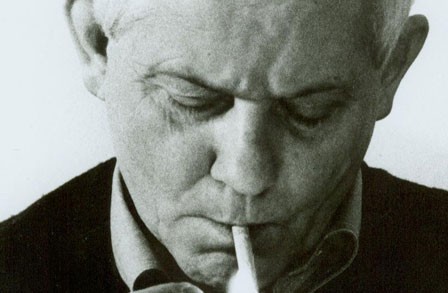Today, another Polish giant, Zbigniew Herbert (1924-1998). He has been called the most beloved Polish poet of his day, ahead of Milosz and Szymborska. I read a revolutionary poem set in a key that affects me, a poem about the stubborn messengers of our hollow truth, in a translation by Bogdana Carpenter:
The Envoy Of Mr. Cogito
Go where those others went to the dark boundaryfor the golden fleece of nothingness your last prizego upright among those who are on their kneesamong those with their backs turned and those toppled in the dustyou were saved not in order to liveyou have little time you must give testimonybe courageous when the mind deceives you be courageousin the final account only this is importantand let your helpless Anger be like the seawhenever you hear the voice of the insulted and beatenlet your sister Scorn not leave youfor the informers executioners cowards—they will winthey will go to your funeral and with relief will throw a lump of earththe woodborer will write your smoothed-over biographyand do not forgive truly it is not in your powerto forgive in the name of those betrayed at dawnbeware however of unnecessary pridekeep looking at your clown’s face in the mirrorrepeat: I was called—weren’t there better ones than Ibeware of dryness of heart love the morning springthe bird with an unknown name the winter oaklight on a wall the splendour of the skythey don’t need your warm breaththey are there to say: no one will console yoube vigilant—when the light on the mountains gives the sign—arise and goas long as blood turns in the breast your dark starrepeat old incantations of humanity fables and legendsbecause this is how you will attain the good you will not attainrepeat great words repeat them stubbornlylike those crossing the desert who perished in the sandand they will reward you with what they have at handwith the whip of laughter with murder on a garbage heapgo because only in this way will you be admitted to the company of cold skullsto the company of your ancestors: Gilgamesh Hector Rolandthe defenders of the kingdom without limit and the city of ashesBe faithful Go
I like the golden fleece of nothingness, and the omission of “is” (Mr. Cogito has lost Mr. Sum a long time ago). It corresponds to the last line about the kingdom without limit (which is no kingdom at all) and the city of ashes, turned into nothingness. Still, we have to pursue it. We have to “attain the good we will not attain” even if we perish in the sand.
The next lines evoke the concentration camps. Yes, how important it was, and still is, to give testimony of the horrors. The courage never to forget, let alone forgive, to be true to one’s Anger and Scorn and beware unnecessary pride and losing your passion. To give testimony, to “go” is all-important yet futile. To write stories like the Gilgamesh epos or the Song of Roland, to be admitted to the company of cold skulls and defend –
Video of alternative translation:
